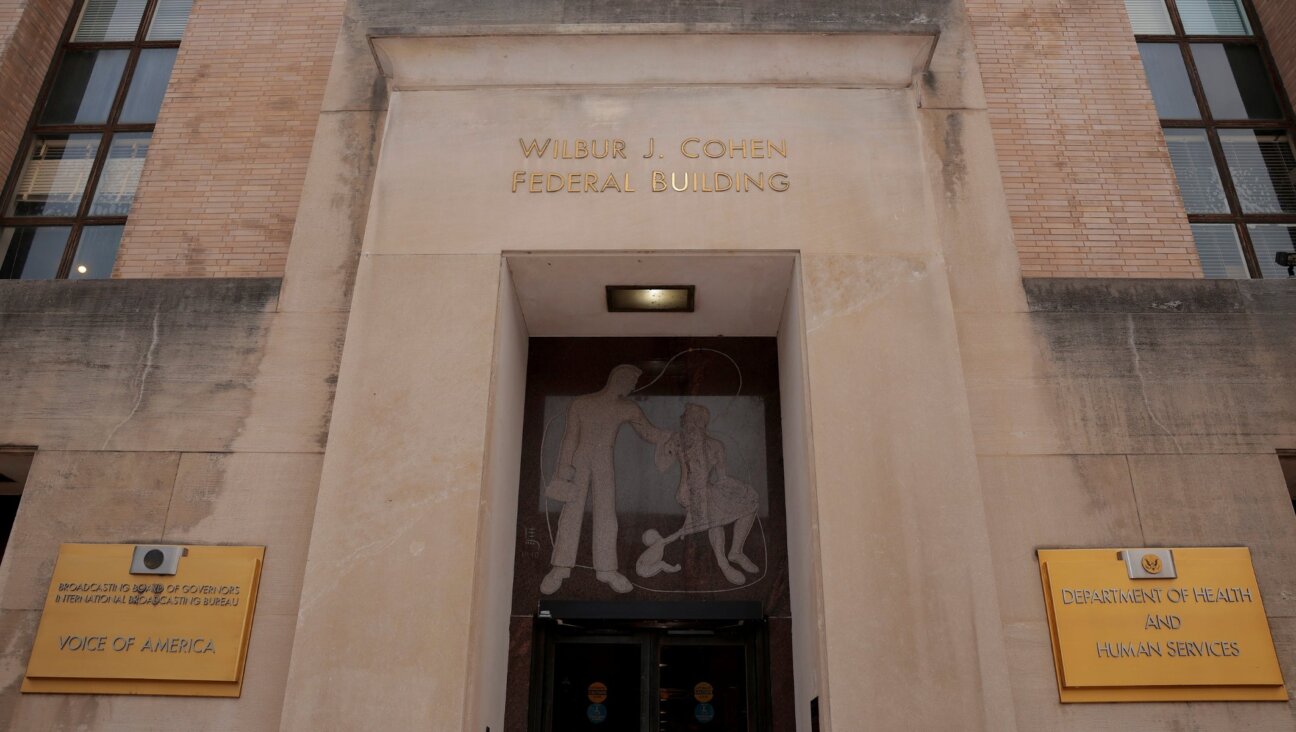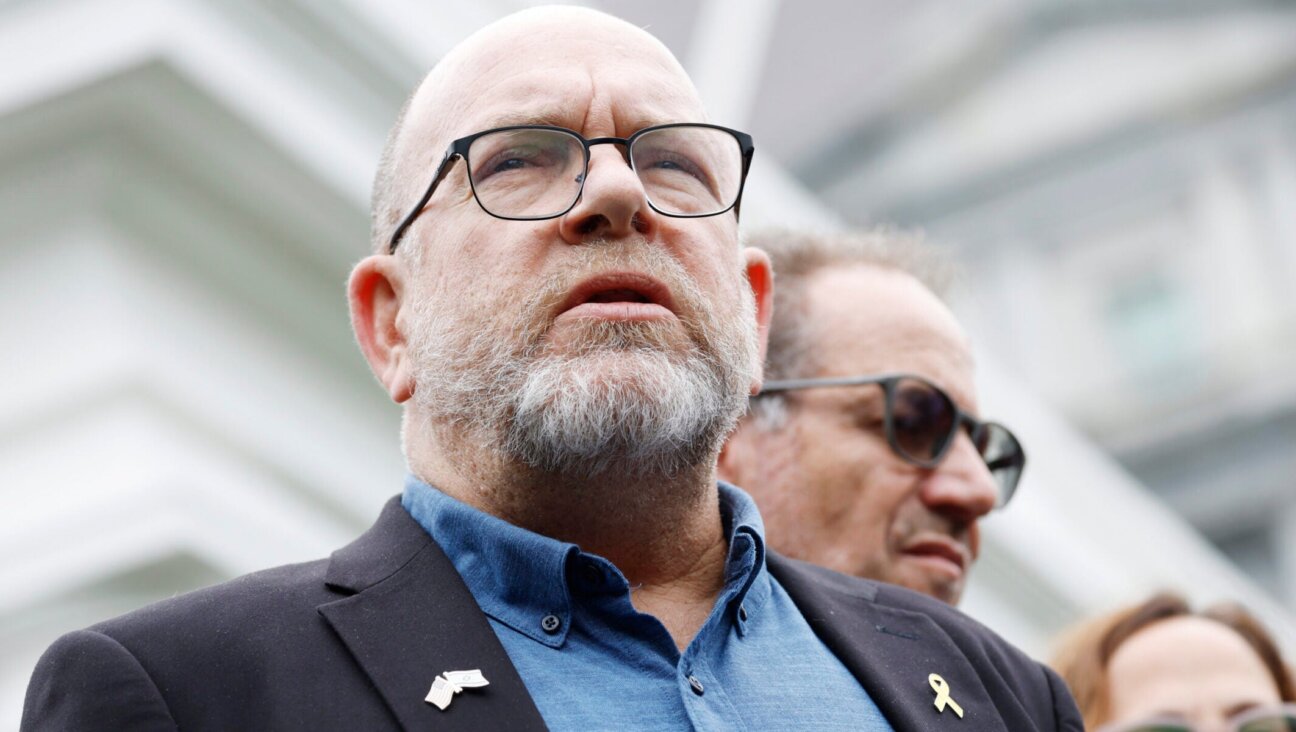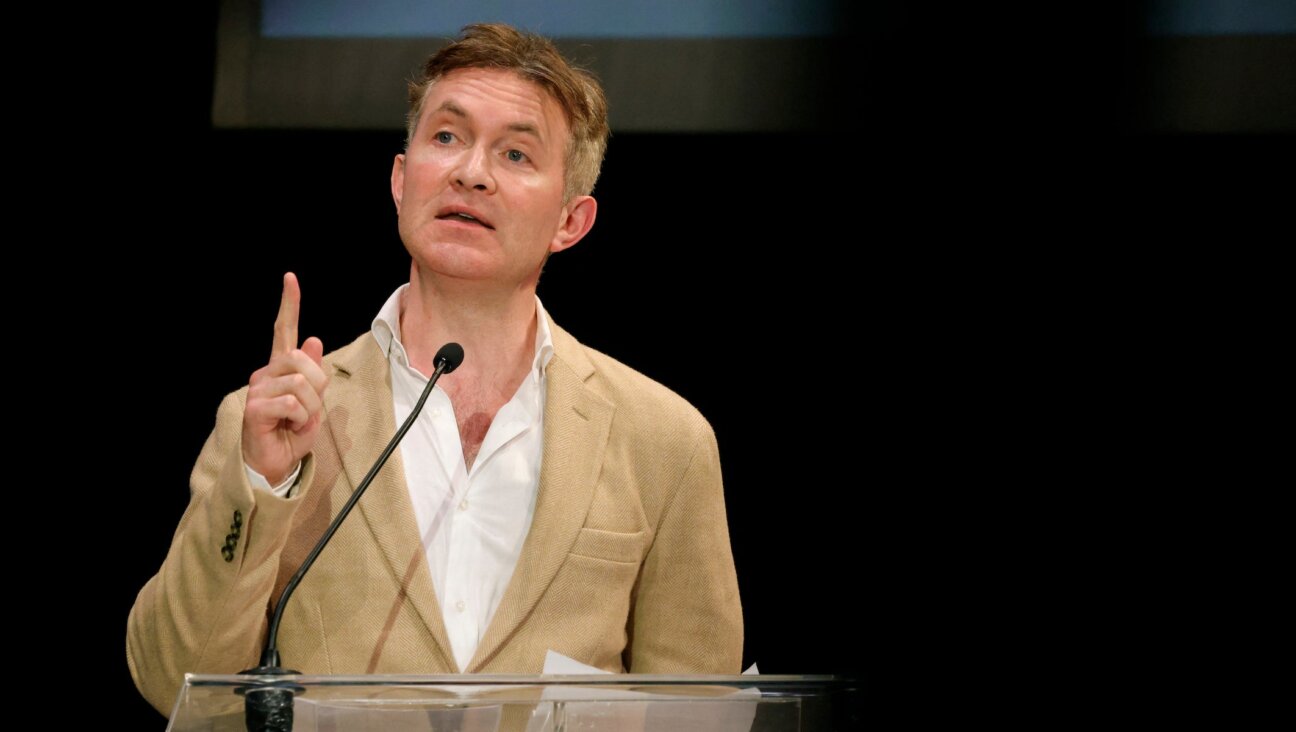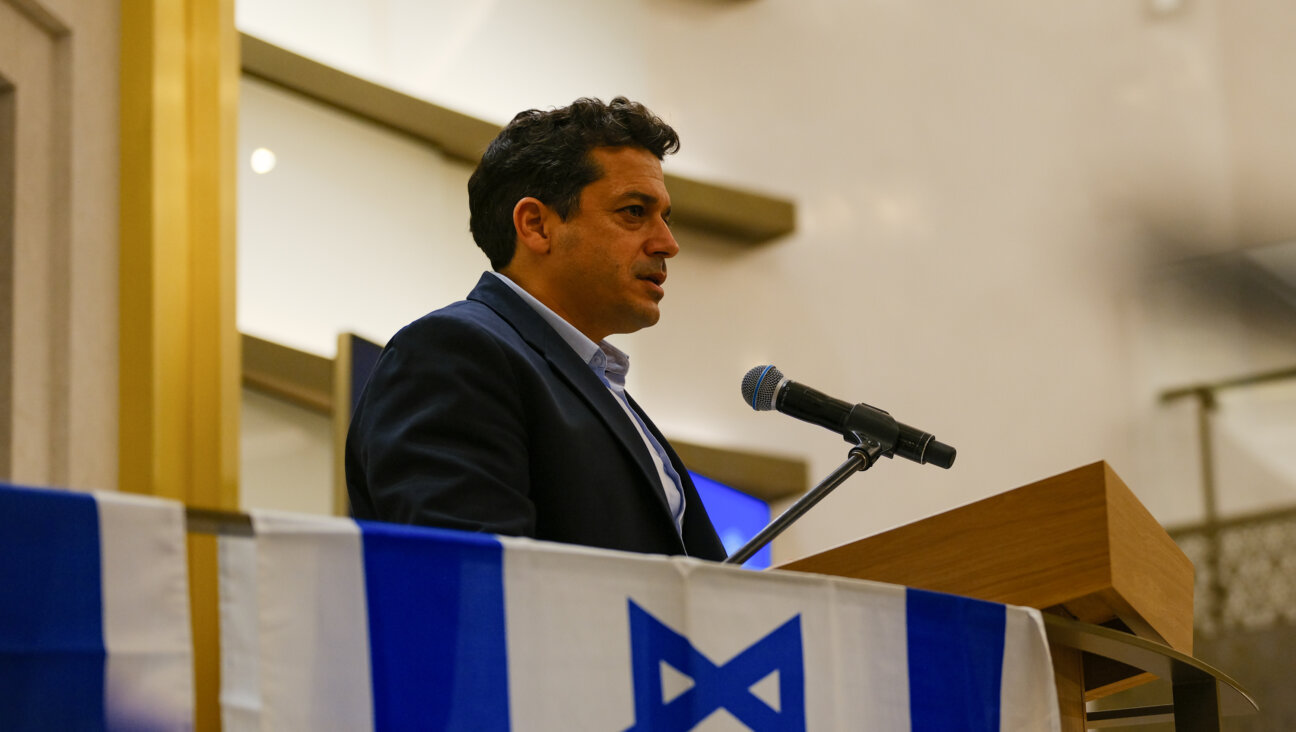David Stav Aims To Oust Haredim From Israeli Ashkenazi Chief Rabbi Post

Strong Run: David Stav is lining up an impressive array of support in his run to be the Ashkenazi chief rabbi. Image by courtesy of david stav
Israel’s Haredim may be on the cusp of losing even more of their power following their exclusion from the new government. If David Stav gets his way, they will no longer control the rabbinate.
The self-styled iconoclast is standing in the election for Ashkenazi chief rabbi this summer, and already has the support of several Likud lawmakers as well as three of the parties in the government — Yesh Atid, Yisrael Beiteinu and Tzipi Livni’s party, Hatnuah — with a fourth, Jewish Home, looking likely to back him. Though decided by a board of 150 people, many of them not politicians, the selection is heavily dependent on political backing.
Israel’s Modern Orthodox rabbis often complain about Haredi dominance in religious affairs, but few act against it as brazenly as 53-year-old Stav, municipal rabbi for the town of Shoham, in central Israel. In 1996 he set up the Tzohar organization to provide an alternative model for the rabbinate. It has become a kind of watchdog of the rabbinate, in addition to providing practical alternatives for those frustrated by Haredi control of the institutions of religious life.
Answering secular Israelis’ complaints about negative experiences at the compulsory pre-wedding bridal classes, it set up its own user-friendly bridal course. And, responding to criticisms that rabbis arrive late or expect payment in contravention of state rules, it started offering its members for officiation, with the promise that they would tailor the ceremony where possible to the couple’s wishes and act for free.
Talking to the Forward in the lobby of a Jerusalem hotel, Stav promised, if elected, to change the basic concept of what Israeli’s government rabbinate is all about. Stav, a 53-year-old father of nine, was born in Jerusalem to a prestigious Hasidic dynasty — his maternal grandfather was rebbe of the Zvhil Hasidic sect, Gedalia Moshe Goldman. His father was a rarity — a Belz Hasid who was also a Zionist, hence Stav’s service in the army and his strong Zionist identity. For much of his rabbinic career Stav was co-head of one of the best-known modern-Orthodox rabbinic academies in Israel, Yeshivat Hesder Petach Tikva, a post he held until 2009
Currently, he claims, the rabbinate’s policies are “directed towards one sector, to satisfy one sector. It doesn’t see any draw to embrace the whole Jewish community.” Encounters with the rabbinate are disorganized, he said, and sometimes leave people feeling “insulted.” This produces a public that “likes to hate Judaism and the Jewish heritage.”
Stav wants to transform the rabbinate into an approachable and streamlined body dedicated to serving the public, where the visits that people make to register marriages turn them on to Judaism instead of turning them off, and where couples are helped to resolve bureaucratic problems rather than sent away because of them.
“My dream is that the couple gets an appointment for 9 a.m. and they will be out at 9.30 a.m.,” he said. “During those 30 minutes, they will have drunk a cup of coffee with some cookies, and in these 30 minutes they should have done whatever they need to do…. When they will speak to the rabbi or rebbetzin or whoever they speak to, they will be inspired, and after 30 minutes they will say: ‘That’s it’? So fast, so easy, so nice?”
Stav’s vision goes beyond smiling employees and coffee machines to confront some of the deep problems facing the rabbinate. Couples are supposed to go to their local rabbinate office, but registrars in some regions of Israel refuse marriage applications for which one or both applicants are converts out of a mistrust of conversion procedures. They do so even though the conversions are actually supervised by the very rabbinate that employs them, but as registrars are tenured, the chief rabbis are unable to fire them.
Stav is promising to deregulate marriage registration, allowing any Israeli Jew to register his or her marriage at any regional rabbinate office. With couples free to go wherever they want, offices that give couples a hard time will soon find themselves abandoned for friendlier offices, he said.
Stav wants to make not only rabbinate offices more welcoming, but also remodel the Israeli face of the Jewish religion in general. The state-run Conversion Authority works slowly and bureaucratically, deterring hundreds of thousands of immigrants from the former USSR who have Jewish lineage but who are not halachically Jewish. They miss many of the benefits of being Jewish in Israel relating to marriage, burial and passing on their Jewishness to their children. In 2011 the state’s Conversion Authority performed just 4,293 conversions, compared with 8,008 in 2007. From 2008 to 2010, the number of conversions dropped to 4,645 from 6,221.
Part of the problem, Stav said, is that when potential converts meet with religious officials, they feel like they are being “investigated by an agent of the police or a Mossad agent.” Instead of treating conversion candidates with suspicion, he wants to welcome them in and try to attract others, convincing them that there is a value to becoming Jewish. Conversion studies will take on more of a component of Jewish philosophy alongside Jewish law.
He and his Tzohar colleagues are concerned that if large numbers of Israelis who identify culturally as Jewish remain halachically non-Jewish, and if marriage registration isn’t overhauled and more couples are driven to avoid Israeli marriage, the government will have no choice but to introduce civil marriage. If this scenario unfolds, he fears, within a few decades millions of Israelis will be halachically non-Jewish. “We feel that if we don’t change the system, we’ll have to confront in 10 to 15 years a society that is divided into two nations,” he said.
Stav’s determination to avoid civil marriage has made him, since he announced his candidacy, unpopular with some on the Israeli left.
Uri Regev, head of the Hiddush, a group lobbying for religious pluralism, wrote in an op-ed in the Forward that the notion that Stav will be “inclusive, accommodating and liberal” is “just an illusion.” Haaretz subsequently published an editorial titled “There Are No Moderate Rabbis,” claiming that in seeking to uphold the religious monopoly on marriage, he “only wants to perpetuate the denial of civil rights, and at most promises that with him, the handcuffs will be covered in fur.”
Stav argues that religious marriage is “key for preserving the Jewish future of the State of Israel” along with the Law of Return and observance of the Sabbath in official contexts. He takes the criticism by Regev and Haaretz as a compliment, saying that “the left wing knows that I’m the one that can save the image of the chief rabbi.”
Contact Nathan Jeffay at jeffay@forward. com















